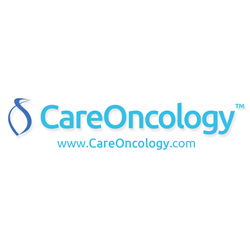
Care Oncology US
Telemedicine reduces the risk of exposure to secondary exposure to bacterial and viral infection.
LOS ANGELES (PRWEB)
April 04, 2020
Care Oncology, a UK-based company, today reports higher demand for telemedicine from cancer patients now undergoing treatment. The company notes that new patient inquiries rose sharply by 35% since March 11 as growing uncertainty related to the Coronavirus COVID-19 outbreak rose.
“Cancer patients feel safer with our telemedicine delivery,” says Jason Butcher, Director of Operations, US, and Canada. “We provide all of our consultations online via a secure video conferencing platform. Given the present state of stress on medical offices and hospitals, telemedicine is the preferred method of communication among patients who are concerned about exposure to the Covid-19 virus.”
Patients choose Care Oncology for their unique metabolic therapies that augment the standard of care cancer treatments. Services and communication go through the clinic’s online telemedicine platform. New and existing patients are evaluated at a distance without the need for them to travel to brick and mortar clinics. Medications are sent to patients’ homes within a few days after their initial oncological consult. Treatments continue for as long as the patient sees a benefit to their health.
“I believe this is the future for cancer treatment that can be taken at home, and I also believe that the Covid-19 crisis will speed acceptance for this delivery model,” says Dr. Charles Meakin, Care Oncology’s chief medical officer. “First, telemedicine is far more efficient for both patient and provider when the patient does not have be seen in person and when medicines can be administered from home. Second, patients have greater access to consultation. They don’t have to wait weeks or months for appointments. Third, and most important, telemedicine reduces the risk of exposure to secondary exposure to bacterial and viral infection, when this option is viable.”
Meakin points out that the most significant risk many cancer patients have is associated with exposure to bacterial or viral infections during a time when they are undergoing standard cancer therapies that can leave them with moderate to severe immune dysfunction.
“Many cancer treatments, radiation, and chemo-therapies, for example, are known to reduce the body’s natural ability to fight off the effects of common flu and colds,” he says. “The Covid-19 virus presents a far more significant threat to cancer patients than it does to the general population. And the risk presents itself every time a patient goes to a physical office for a visit.”
According to Meakin, an award-winning radiation oncologist who has treated patients in clinics and hospitals for more than 35 years, the physical office visit unfolds, “an enormous burden of risk to the cancer patient.”
Meakin believes that patients and their oncologists must decide whether they can continue treatment given the strain that hospitals are under with treating people with the Coronavirus.
“Two factors that make the risk untenable for cancer patients,” he explains. “One, the physical office visit is not always necessary, and two, patients sit in a waiting room for long periods where the risk to exposure to the Covid-19 virus increases with each minute.”
Every individual situation is different, and the decision about treatment is a personal one that should be taken together with the local viral risk, Meakin notes.
According to literature distributed by Care Oncology, the “COC Protocol” does not cause immunosuppression and therefore does not change patient risk to the Covid-19 virus. The reason is that Care Oncology’s treatment targets cancer cell metabolism.
“In a very literal sense, the COC Protocol starve cancer cells and inhibits their growth,” says Meakin. He suggests that some patients who elect to pause their standard cancer treatments may consider using the COC Protocol to help weaken their cancer.
ABOUT THE COC PROTOCOL
The COC Protocol was developed by sister organization, Care Oncology Clinic, based in London, UK. The COC Protocol is an adjunctive cancer treatment that is designed to work with standard-of-care cancer treatment. In one published study, the COC Protocol doubled survivability for patients suffering from Glioblastoma, a form of brain cancer. Patients that showed improvement received both the protocol and standard-of-care cancer treatment (chemo, radiotherapies). Care Oncology US offers the protocol for all forms of cancer to US and Canadian patients.
According to Butcher, COC Protocol is not a form of targeted therapy nor is it intended to replace standard of care. “Our researchers called it ‘adjunctive therapy’ because the protocol is used in conjunction with standard-of-care therapies (genetic, chemo, radiation),” he says.
Medications used in the COC Protocol have been in use for more than 20 years and are safe, even with all types of current cancer treatments. The medications have been repurposed because they have been found to be effective in interfering with the metabolic processes that are common in all cancer cells, regardless of their tissue of origin.
“The drugs in the COC Protocol have an established safety profile and significant population-based data suggesting they may improve outcomes when combined with standard of care,” says Butcher. “The medications in the protocol target the dis-regulated metabolism of cancer cells, a feature that is common to all types of cancer.”
For more information, visit http://www.careoncology.com Or call 800-392-1353.
Care Oncology operates in the United States as an online, telemedicine provider. The company has a research and treatment clinic in the UK located at 40 Harley Street, London, W1G 9PP.
Share article on social media or email:

